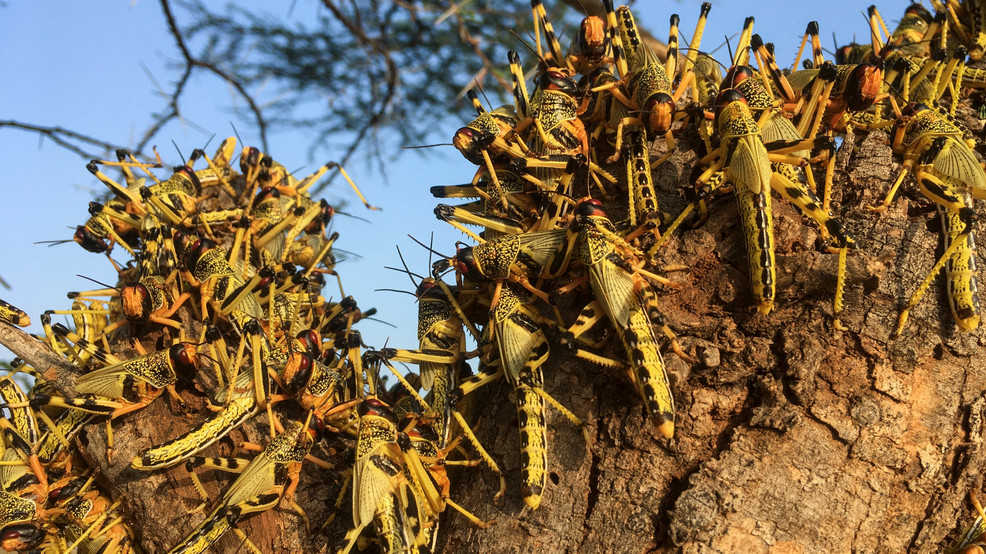By Kudakwashe Vhenge
A devastating African travelling locust outbreak that have affected Southern African Development Community (SADC) region could threaten the country’s 2020/2021 farming season.
Swarms and hoppers which initially infested two sites in the Chiredzi District are now reported to have have moved into Manicaland Province.
Locust damage to crops is likely to compound existing food insecurity in communities already affected by floods, drought and the impacts of COVID-19.
The SADC secretariat has since issued a statement warning of the need to intervene on the fast spread of the locusts which is threatening food security in the region.
“The first outbreak which was first reported in February, 2020 affected eight Member States namely; Botswana, Eswatini, Malawi, Mozambique, Namibia, South Africa, Tanzania and Zambia.
“At the time, the affected Member States were able to control the swarms. However, there was a resurgence of the locusts in May,affecting Angola, Botswana, Namibia, Zambia and Zimbabwe”.
Currently, the African Migratory Locust swarms in Angola, Botswana, Namibia, Zambia and Zimbabwe have grown tremendously; rendering the on-going efforts implemented both at national and regional level inadequate”.
SADC also warned that if unattended the eruption of the locusts has the potential to cause severe food shortages in the affected member states in Zimbabwe and beyond.
“The current outbreak has a potential to spill beyond the five affected Member States if not urgently controlled.
“The outbreak poses a serious threat to the national and regional food security which already indicates high numbers of food insecure and vulnerable populations.
Last month the Food and Agriculture Organization (FAO) advised that the outbreak could be a threat to food security and livelihoods of millions of people further inflicting the food shortages caused by covid-19.
“Outbreaks of African Migratory Locust (AML) are threatening the food security and livelihoods of millions of people in Botswana, Namibia, Zambia and Zimbabwe.
“Around 7 million people in the four affected countries who are still recovering from the impact of the 2019 drought, and grappling with the economic impacts of the Covid-19 pandemic, could experience further food and nutrition insecurity.
Early this year, World Food Program (WFP) said that more than one-third of the rural population in Zimbabwe will be food insecure by October 2020.
Zimbabwe is facing its worst hunger crisis in a decade with half of the population rendered food insecure.
